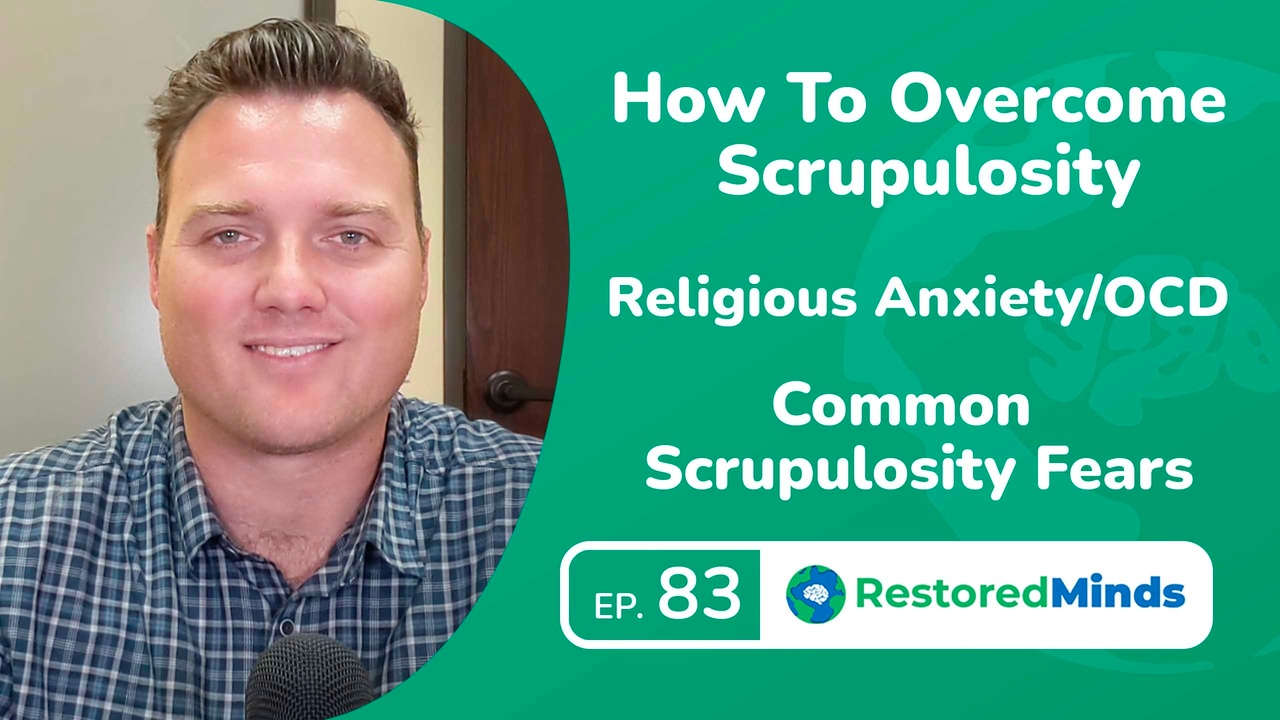How To Overcome Scrupulosity - Religious Anxiety/OCD - Common Scrupulosity Fears
Apr 01, 2021
How to Overcome Scrupulosity: Understanding and Managing Religious Anxiety and OCD
What is Scrupulosity? Scrupulosity is a form of obsessive-compulsive disorder (OCD) characterized by persistent, intrusive thoughts and fears regarding religious or moral matters. These thoughts often result in significant anxiety and distress. Common concerns include questions like, "What if God sends me to hell?" "What if I lose my salvation?" or "What if I unknowingly committed an unforgivable sin?"
The Mindset of "What If": A key feature of scrupulosity is the "what if" mindset, where individuals worry about both past and future events. It's important to recognize that this anxiety lives in the realm of the hypothetical—not in the present moment. Worrying about hypothetical scenarios only amplifies the anxiety and keeps one stuck in a cycle of fear and reassurance-seeking behaviors.
Common Fears in Scrupulosity:
-
Fear of divine punishment (e.g., going to hell)
-
Loss of salvation or God’s love
-
Committing unforgivable sins
-
Fear of possession or demonic influence
Understanding the Real Problem: To effectively overcome scrupulosity, it’s crucial to distinguish between the fear itself and the perceived religious problem. Often, individuals mistake their fear for an actual religious issue. By recognizing that the anxiety is the real problem, you can begin to address it directly.
The Loop of Anxiety: Scrupulosity often follows a repetitive loop involving:
-
Obsession or intrusive fear (the "what if" thought)
-
Anxiety (emotional and physical stress response)
-
Safety behavior (seeking reassurance or performing rituals)
-
Temporary relief (which reinforces the loop)
Historical Context: Scrupulosity is not a new phenomenon. Historical figures like Martin Luther have well-documented struggles with religious OCD. Understanding that this is a well-recognized condition can be reassuring.
Steps to Overcome Scrupulosity:
-
Separate the Fear from Reality: Understand that your fear (e.g., fear of offending God) is separate from any actual offense. The first step is to clearly identify that it is the fear itself that needs addressing.
-
Challenge Confirmation Bias: Recognize that seeking constant reassurance (e.g., from religious leaders or rituals) only fuels the anxiety. Challenge the need for validation through repetitive behaviors.
-
Address the Anxiety: Focus on managing the anxiety rather than the content of the intrusive thoughts. Techniques such as cognitive-behavioral therapy (CBT) and mindfulness can be highly effective.
-
Identify Safety Behaviors: In our next blog post, we will discuss common safety behaviors associated with scrupulosity, including checking, reassurance-seeking, and ritualistic prayers.
Conclusion: The journey to overcoming scrupulosity starts with understanding and separating the actual problem from the fear it generates. By addressing the anxiety and breaking the repetitive cycle, you can reclaim your peace of mind and strengthen your faith.


